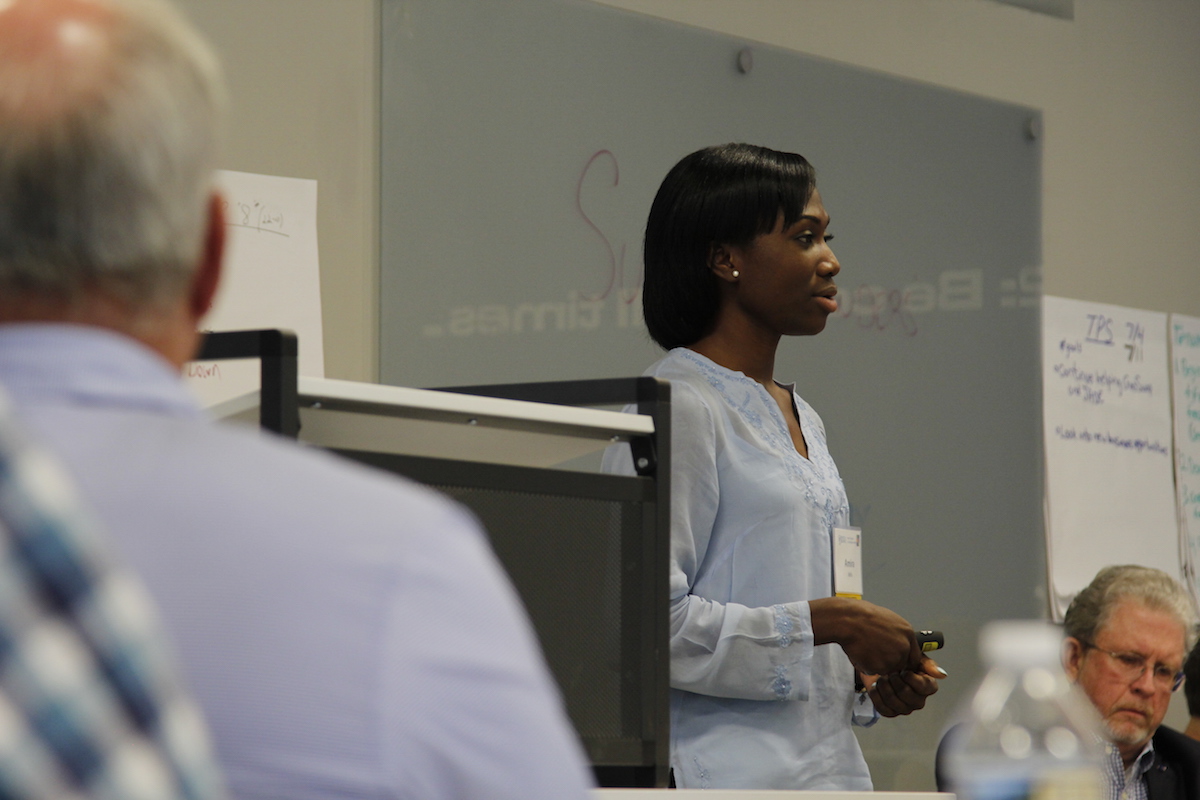Phantom pain is a condition amputees know all too well. Basically, if an individual is missing an organ or a limb, the brain is unable to process the loss so it keeps sending pain signals to where the part is supposed to be. This pain causes patients a great deal of grief, sometimes patients are unable to sleep because the pain is so powerful.
Summer Founders Program participant Amira Idris wants to help. She and her team have a new product: Vibrating Therapeutic Apparel.
Idris graduated from the University of Delaware with a degree in biomedical engineering. In the course of her prosthesis studies, she learned about phantom pain and realized that none of the existing solutions were really effective. She was also on the track and field team as an undergrad, and underwent a painful surgery where she says she had a similar experience.
“I had some bone shaved off. When my meds wore off, I was in severe pain,” she said. “I can’t imagine what amputees might feel like.”
So when she was admitted into the Summer Founders Program, she took it as an opportunity to really get into her research by traveling to eight different states to interview healthcare providers and patients.
“We try to encourage them to understand the ‘day in the life’ of their customer,” said Horn Program for Entrepreneurship venture support lead Vincent DiFelice.
“Horn saw the impact this would have in that field and decided to help me,” said Idris.

A mockup of a VTA device. (Courtesy image)
Here’s how the devices work: Patients will buy sleeves that come with vibrating nodes, the sleeves can be placed where phantom pain exists. These devices will have on/off buttons and will give the user an opportunity to increase or decrease intensity and alter the vibration pattern.
Beta testing is scheduled to begin by October, Idris said. She’s currently producing more prototypes. Ten patients from Delaware and Pennsylvania will be involved in the testing process.
Idris wants to keep the product affordable. “I’m shooting for nothing more than $400 [per unit, pre-insurance], but this will be determined by the feedback I get from beta testers,” she said. “I still have to pay for manufacturing and shipping, so all of these things will be taken into consideration.”
The startup currently has funding from one angel investor.
Join our growing Slack community
Join 5,000 tech professionals and entrepreneurs in our community Slack today!
Donate to the Journalism Fund
Your support powers our independent journalism. Unlike most business-media outlets, we don’t have a paywall. Instead, we count on your personal and organizational contributions.




